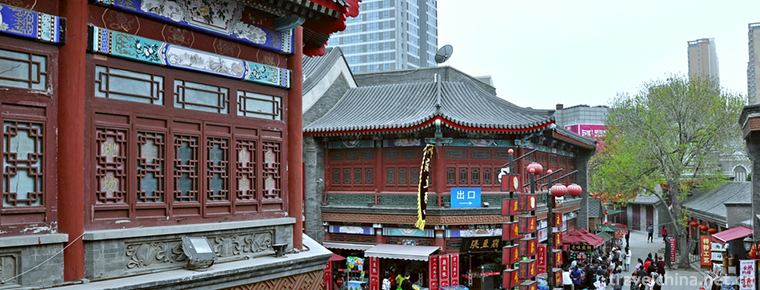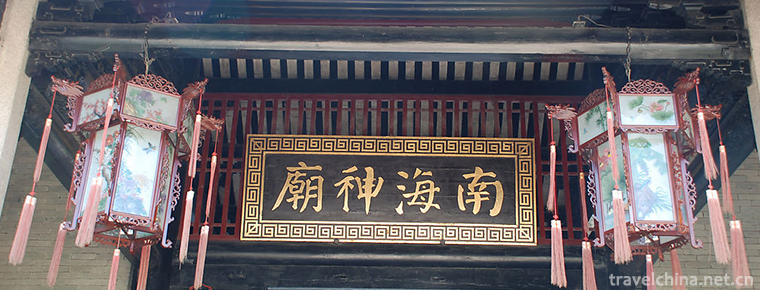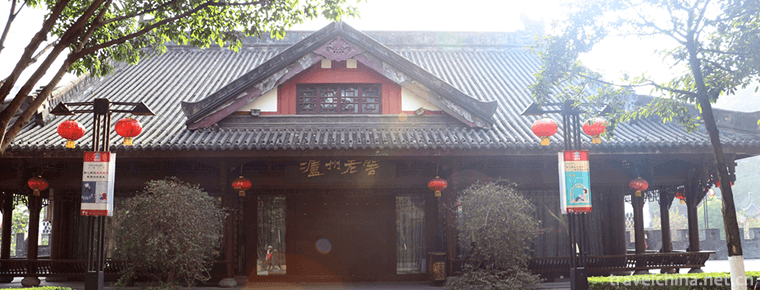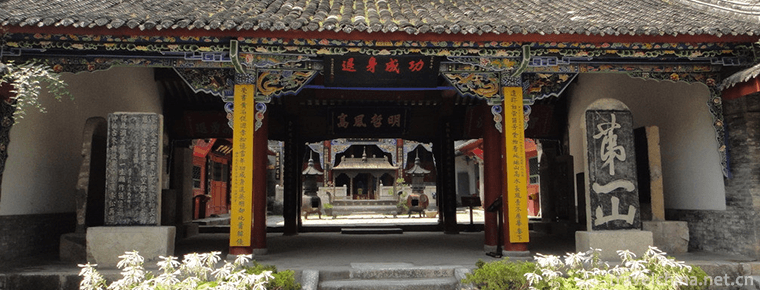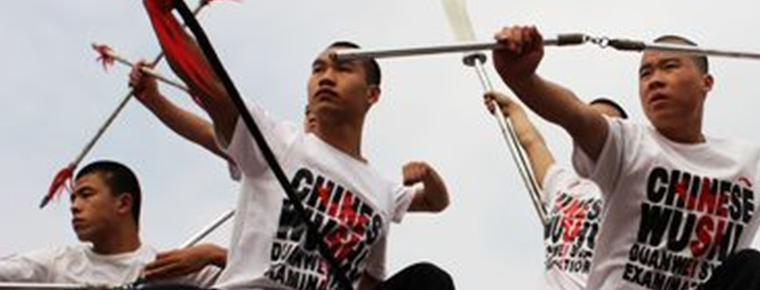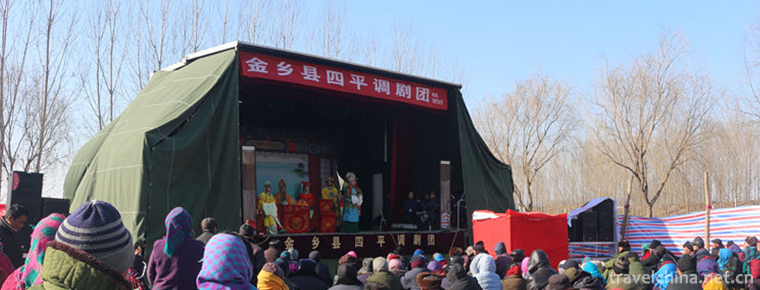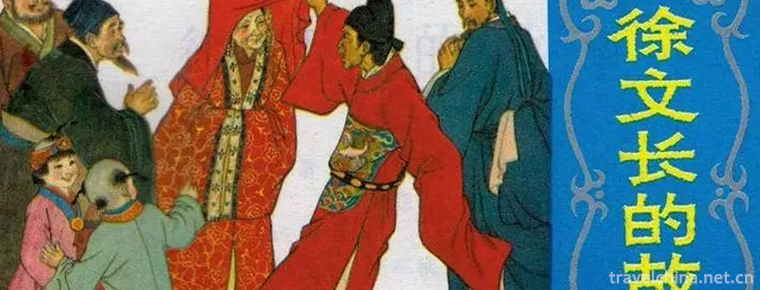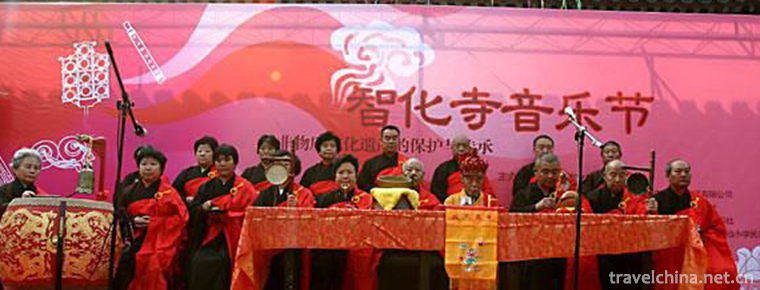Suqiao Flying Fork Club
Suqiao Flying Fork Club
Suqiao Flying Fork Club, also known as Yun Fork Club, is a local traditional acrobatics performance popular in Wen'an County, Hebei Province. The performances mainly consist of ancient forks, drums, cymbals and percussion music. The earliest content of the performances is "Five Ghosts Na Liu Shi". A total of 136 movements, the basic skills are: face-to-face flower, hand string, carp stand up, backwater and so on. Suqiao Flying Fork Club is different from other areas. The performances are divided into single and double forks. The forks are divided into single and double forks. They can be played by one person, by two people, by one person, by two people, and by three forks. List the second batch of national intangible cultural heritage.
historical origin
Suqiao Town, located 20 kilometers north of Wen'an County, is one of the most important towns along the Daqing River in Hebei Province. The original name of Jianzhen in Han Dynasty was eight surnames Zhuangzhuang, which was renamed Suqiao because Suyi, a writer in Song Dynasty, had once been in charge of Wen'an. At the end of Qing Dynasty and the beginning of Ming Dynasty, Feijiao Association in Suqiao Town was one of the most famous local cultural and recreational organizations. Suqiao Town is located in the triangle of Tianjin, Beijing and Baojiao. It is situated on the dike beside the Daqing River. It is a famous "drought and flood wharf". Opening on the fifth day - the fifth, fifteenth and twenty-fifth day of every month, and the first day is three days. At that time, people from around Yangliuqing, Shengfang and other places, far away Tianjin and Baiyangdian will come to the fair. The lively and prosperous life breeds all kinds of recreational activities, which has become one of the reasons for the prosperity of Flying Fork Club.
The fork is one of the ancient weapons. It is also used as a tool of entertainment and honor in ancient palaces. During the Three Kingdoms of the late Han Dynasty in the 1st and 3rd centuries, some warriors practiced crossing and lined up to perform crossing skills. Later, it gradually spread to the people and became one of the acrobatic forms popular with the working people. Suqiao flower fork association was founded between 1861 and 1875 A.D. (Tongzhi period of Qing Dynasty). It was handed down by Zhang Yuchun, a Shanxi native (famous master of Tongbei Quan). Zhang Yuchun studied art under the door of Han Pingshan, a Taoist priest of Baiyun Guan in Beijing. He passed flower fork on to Jin Xiaoxuan, Suqiao Town, Wen'an County, Hebei Province, and Jin Xiaoxuan to Jin Wenbin. In the late Qing Dynasty and early Republic of China in the early 20th century, Jin Wenbin built the Suqiao Flying Fork Club by combining the three skills of Tongbei, Taiji and flower fork. So Jin Wenbin is the founder of Suqiao Flying Fork Club.
Folklore Contents
The Flying Fork Club, also known as the Cloud Fork Club, is mainly composed of drums, cymbals and percussion instruments. The earliest performance content is "Five Ghosts Na Liu's". Suqiao Town performed "Five Ghosts Take Liu's" for seven days, two hours a day. Five Ghosts changed one face mask every day, altogether 35 faces in seven days. The fork has 136 movements. In addition to performing on the ground, it can also perform on the square bench with both legs. It can not only perform single fork, but also double fork, so as to achieve a pure fire.
Its basic skills include: facing flower, hand string, carp upright, backward water, four kicks (around), soft and hard high and short four kicks, anyway fork, left and right fork, one hand fork, two hands fork, water mill, golden thread wrapping, single finger spinning, ghost push mill, pull down pumpkin seedling, etc. "Eighteen Rolls in Situ" and "Back Sword in Su and Qin Dynasties". The four stunts are "dry grinding", "weighing money", "big back sword", "hard fish standing up" and so on.
Suqiao Flying Fork Club is different from other areas. The performances are divided into single and double forks. The forks are divided into single and double forks. They can be played by one person, by two people, by one person, by two people, and by three forks.
A Brief Introduction to the Play
The most common performance of "Flying Fork Club" is "Five Ghosts Take Liu's Family". Liu Shi was a woman in Tang Dynasty. She lost her husband in her early years and had four sons. Liu believed in God and Buddha and worshipped the throne at home all the year round, but because of his son's successive illness, he was angry and smashed the throne. So he infuriated the King of Yan and ordered five ghosts to capture Liu. After the Five ghosts took command, Liu was captured with a steel fork in hand. However, Liu's practice for many years has become a half-immortal body. After many pains, Liu was finally captured.
Inheritance and Protection
Jin Yueting, a disciple of Jin Wenbin, the founder of Suqiao Flying Fork Association, is also known as Jin Xiaoquan. In 1951, the Chinese folk opera consolation Troupe will go to the DPRK to console the volunteers. The head of the troupe, Chang Baoku (mushroom mushroom), personally went to Suqiao to find Jin Yuetang and invited him to perform in the DPRK. After arriving in Dandong, it was impossible to stay in Dandong because of severe dysentery. After returning, 14 disciples of Suqiao, such as Dixipeng, Zhao Jingtian, and Wang Shufang, Wang Keyi, Fan Jingquan and Gao Yin of Baxian County were handed down. The most famous of them are Dixipeng and Zhao Jingtian, who are still carrying on their art in the early 21st century.
All the members of Suqiao Flying Fork Club are farmers. With the development and change of rural economy, it has become a common phenomenon for farmers to engage in commercial trade and labor export in the leisure season, and economic problems have become the top priority that plagues the Suqiao Flying Fork Conference. Without economic income, no one is willing to learn, and all of them are only children. There is a certain danger in performance. Parents are unwilling to let their children learn, which seriously hinders the inheritance. As a result, Suqiao flying fork will lose its market, especially by the cold shoulder of young people.
In June 2008, Suqiao Feijiao will be selected as the second batch of national intangible cultural heritage list. During the Spring Festival every year, the Feijiao Festival performs in the performances of the mass Flower Fairs in Suqiao Town, and has participated in the performances of the intangible cultural heritage in Wen'an County, the performances of "going to the countryside three times", the performances of "Hebei Rural Cultural Work Conference" and the performances of leaders at all levels who come to Suqiao.

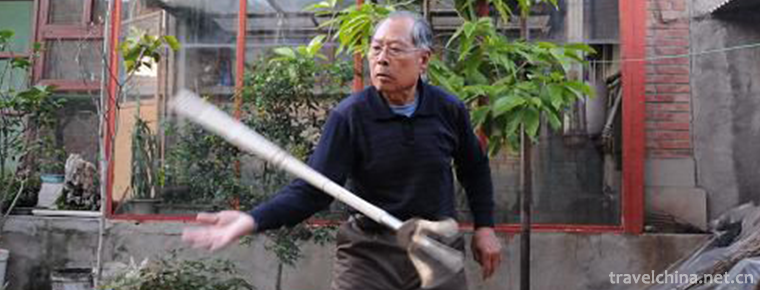
-
Tianjin Ancient Culture Street Tourist Area Jinmen Hometown
Tianjin Ancient Culture Street is located outside the east gate of the northeast corner of Nankai District of Tianjin City and on the West Bank of Haihe River.
Views: 224 Time 2018-11-24 -
Nanhai Temple
Nanhai Temple, also known as the Polo Temple, is a place where ancient Chinese laborers worship the sea. Located in Miaotou Village, Huangpu District, Guangzhou.
Views: 199 Time 2018-12-31 -
Luzhou Laojiao Tourist Area
Luzhou Laojiao Tourist Area is located in Jiangyang District, Luzhou City, Sichuan Province. Its transportation is convenient. It is a tourist boutique created by Luzhou Laojiao Co., Ltd..
Views: 311 Time 2019-02-06 -
Xia Jin Old Yellow River Forest Park
The forest park scenic spot of the old Yellow River in Xiajin is the ruins of the old Yellow River. It is a national AAAA-level scenic spot. It is located in Xiajin County, Shandong Province.
Views: 382 Time 2019-02-25 -
Zhangliangmiao Scenic Area
Zhangliangmiao, a holy place of Quanzhen sect, is located at the foot of Zibai Mountain on the southern slope of Qinling Mountains. It is 101 kilometers south of Hanzhong.
Views: 104 Time 2019-03-16 -
Eighteen General Martial Arts
A traditional term of Chinese Wushu, also known as "Eighteen Weapons" and "Eighteen Weapons", is commonly used in ancient Chinese operas and novels, referring to the use of various.
Views: 165 Time 2019-06-15 -
Siping Tune
The Siping tune evolved from the flower drum in eastern Henan. After digging and sorting out, it absorbed the tunes of opera critics, Peking Opera, Henan Opera and so on. It gradually perfected and fo.
Views: 112 Time 2019-06-16 -
Xu Wenchangs Story
The story of Xu Wenchang takes the history of the middle and late Ming Dynasty as the background. From the legend story of Xu Wenchang's youth, "Taking things from the pole", it has been tol.
Views: 135 Time 2019-07-09 -
Jihua Temple Music
The music of Zhihua Temple and Beijing originated from the music of court etiquette in Ming Dynasty. It is the only kind of music inherited from generation to generation in China's existing ancient mu.
Views: 177 Time 2019-08-03 -
Anhui Medical University
Medical University Of Anhui (Anhui Medical University), referred to as "an Medical University", located in the capital of Anhui. Hefei City Yes. Key universities in Anhui By Anhui Provincial.
Views: 102 Time 2019-10-10 -
Wannan Medical College
Wannan Medical College is located in Wuhu, a famous historical city known as "the great port of the Yangtze River and the backbone of Anhui". It is close to the vast Yangtze River and gather.
Views: 138 Time 2019-11-19 -
Deyang scenic spot
There are Sanxingdui ancient Shu civilization sites in Deyang City, where a large number of national treasure level cultural relics such as bronze Dali Man, bronze mask, bronze sacred tree, gold stick and Bian Zhang were unearthed. There are also the pangtong.
Views: 300 Time 2020-12-14
